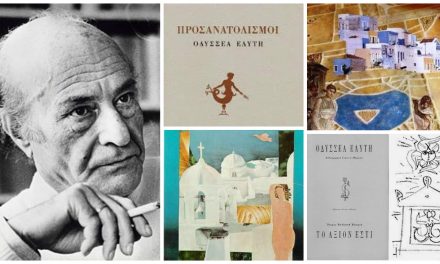Acknowledging the strong need for science to be reestablished in society and to engage stakeholders, the Institute for Historical Research of the National Hellenic Research Foundation and the Laboratory of Science Education, Epistemology and Educational Technology (ASEL) of the University of Athens, have joined efforts to launch the History, Philosophy and Didactics of Science Programme (HPDST) and accomplish their goal through state of the art research, using an interdisciplinary approach.
For the past 16 years, the HPDST team has developed into one of the most promising of its kind in SE Europe bringing ambitious projects to life. One of its most acclaimed works is The Narses Project, aiming to map the relationship between sciences and religions from the 4th c. AD to the 20th c. in Southeastern Europe and East Mediterranean. Funded by the National Strategic Reference Framework (ESPA), the project raised the “Needham question” of why certain societies instead of others develop a more systematic scientific practice, and related it to the connecting bond between science and religion. In its search, it focused on social formations where Eastern Christianity was the dominant religious tradition with the purpose to fill an important gap in the historiography of science: while huge literature exists on the relationship between science and religion in the context of Western Christianity, there is almost a void when it comes to the Byzantium, the Ottoman Empire and the Balkan states, marked by Eastern Orthodox Christianity.
For this goal, NARSES collected, examined and catalogued the religious texts on nature, the scientific texts evincing theology, and the canonical texts on knowledge and sciences from 4th century AD to the 20th century in Southeastern Europe and the East Mediterranean. The project also mapped the complexity of the sciences-religion relationship, the Eastern Christianity groups active in debates on nature, and the institutions responsible for the production and negotiation of knowledge about nature and God. Within the scope of the project’s activities, interdisciplinary research, networks, seminars and conferences have been organized for the training of young scholars on sciences and religions in SE Europe and the East Mediterranean. One such event was the International Conference “Science & Religion” that took place in Athens last September (3 – 5 September 2015), highlighting interdisciplinary research to reveal unknown dimensions of the science-religion relationship, with major implications for the historiography of science, developed with reference to both Western and Eastern European societies.

The NARSES project lasted from November 2012 to November 2015 and was presented last month at the Faculty of Social Theology of the University of Athens. Its implementation opened a new research field, constituting solid ground for the further development of research for the whole of Eastern Europe and interdisciplinary comparative studies on science and religions between East and West. It will also contribute to the dialogue between societies with different cultural histories and traditions.
TAGS: HERITAGE | HISTORY | SCIENCE & TECHNOLOGY














